Grace
The following on grace, eternal salvation, predestination, backsliding, apostasy, and holiness is derived from a message delivered on October 6, 2013, and is expanded herein for this paper. One of my cherished beliefs is that as Christians, we are collectively journeying on God's Highway towards the new Jerusalem in heaven.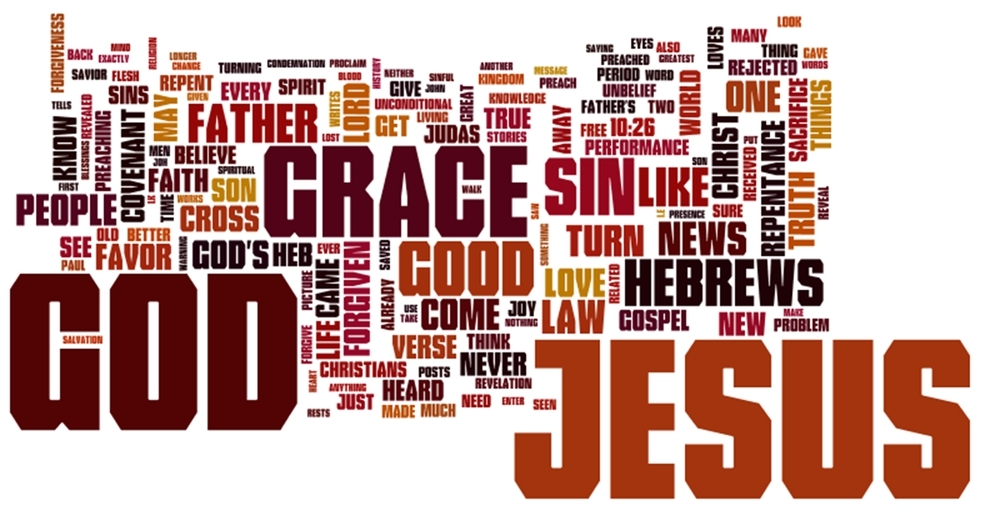
Let us establish the premise on grace. As Christ's followers, we are sanctified, set apart to enter His Kingdom, Heaven. This sanctification designates us as the saints of God. However, our salvation is not predetermined; it hinges on our free will to choose or reject Christ. By grace alone are we saved when we choose to follow Christ. This salvation initiates a continual process of living according to God's will, striving for a holy and worthy life. This pursuit of holiness is not a solitary endeavor; Christ, through His Holy Spirit, aids us in this journey. Our salvation, conditionally tied to living a holy life, is a choice we must consciously make. Denying Christ, whether through sin, backsliding, or outright apostasy, raises the question: why would Christ want anyone in His Kingdom who does not wish to be there? Thus, we set the foundation of this message on grace.
Regarding theologies of salvation and grace, we consider the perspectives of theologians like John Calvin, Jacobus Arminius, John Wesley, and J. Rodman Williams, each held in high esteem, though I do not fully align with any one of them.
For this topic we will also refer to John Wesley and J. Rodham Williams
So let me introduce these revered gentlemen first.

John Calvin;
John Calvin was an influential French theologian and pastor during the Protestant Reformation. He was a principal figure in the development of the system of Christian theology later called Calvinism.
- Born: July 10, 1509, Noyon, France
- Died: May 27, 1564, Geneva, Switzerland
- Full name: Jehan Cauvin
Jacobus Arminius
Jacobus Arminius, the Latinized name of the Dutch theologian Jakob Hermanszoon from the Protestant Reformation period, served from 1603 as professor in theology at the University of Leiden.
- Born: October 10, 1560, Oudewater, Netherlands
- Died: October 19, 1609, Leiden, Netherlands
- Full name: Jakobus Hermanszoon
John Wesley
John Wesley was an Anglican cleric and Christian theologian. Wesley is largely credited, along with his brother Charles Wesley, as founding the Methodist movement which began when he took to open-air preaching in the same way as other English preachers in his day.
- Born: June 17, 1703, Epworth, Lincolnshire, UK
- Died: March 2, 1791, London, UK
J. Rodman Williams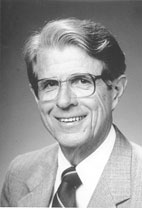
Dr. J. Rodman Williams, regarded as the father of modern Renewal Theology, was a charismatic theologian and Professor of Renewal Theology at Regent University in Virginia Beach, Virginia.
- Born: August 12, 1918, Clyde, North Carolina USA
- Died: 2008
John Calvin, a central figure in the Protestant Reformation, is known for his doctrine of Calvinism, which emphasizes predestination and the sovereignty of God in the process of salvation. Jacobus Arminius, a Dutch theologian, presented a contrasting view, emphasizing free will and human responsibility in the context of predestination. John Wesley, an Anglican cleric and theologian, founded Methodism and is known for his emphasis on open-air preaching and personal holiness. J. Rodman Williams, a prominent figure in charismatic theology, made significant contributions to modern Renewal Theology.
A crucial truth is that all who have sinned, are sinning, or will sin, cannot enter heaven on their own merit.
Romans 3:21-25 (CJB)
"21 But now, quite apart from Torah, God’s way of making people righteous in his sight has been made clear — although the Torah and the Prophets give their witness to it as well — 22 and it is a righteousness that comes from God, through the faithfulness of Yeshua the Messiah, to all who continue trusting. For it makes no difference whether one is a Jew or a Gentile, 23 since all have sinned and come short of earning God’s praise. 24 By God’s grace, without earning it, all are granted the status of being considered righteous before him, through the act redeeming us from our enslavement to sin that was accomplished by the Messiah Yeshua. 25 God put Yeshua forward as the kapparah (Ransom/Atonement CdR) for sin through his faithfulness in respect to his bloody sacrificial death. This vindicated God’s righteousness; because, in his forbearance, he had passed over [with neither punishment nor remission] the sins people had committed in the past; "
A fundamental truth in Christian doctrine is that all who have sinned, are sinning, or will sin, are incapable of entering heaven based solely on their merits. Romans 3:21-25 (CJB) clarifies that righteousness is attainable through faith in Yeshua the Messiah, a gift of God's grace, not a result of human efforts.
The Law, given during the time of Moses, set a standard for righteousness. However, in the current dispensation, righteousness is offered through grace in Jesus Christ, independent of the Law. This gift of grace, though freely given, necessitates acceptance and submission to the lordship of Christ.
Grace, as understood in church doctrine, is the unmerited favor of God, made available through the sacrifice of Christ.
Saint comes from the word Sanctification, made Holy, or a way better translation, set aside.
When saved by grace, we are set aside as a child of God, or as we call it so often we became a saint of God.
 Holiness is not something that comes automatically, Holiness is something we need to work on.
Holiness is not something that comes automatically, Holiness is something we need to work on.
John Wesley has a statement or doctrine called “entire sanctification”.
While it correctly states the goal of a total or, entire sanctification of the whole person, Body, Soul, and Spirit, it is way to much to state that because of this in Wesley's words “Sin ceases to be”
It was "the grand depositum which God has lodged with the people called Methodists, and for the sake of propagating this chiefly He appeared to have raised us up" [Works, Volume XIII, page 9].
John Wesley believed the doctrine of entire sanctification was Methodism's distinctive gift to Christianity.
He called it "the great promise of God" [IV. 138], Christian perfection, the holiness of heart, and life.
the United Methodist Book of Discipline (para. 62), includes the following statement:
“Entire sanctification is a state of perfect love, righteousness and true holiness which every regenerate believer may obtain by being delivered from the power of sin, by loving God with all the heart, soul, mind and strength, and by loving one's neighbor as one's self. Through faith in Jesus Christ this gracious gift may be received in this life both gradually and instantaneously, and should be sought earnestly by every child of God. “
Wesley believed that Christ's death on the cross made it possible not only for sinners to be saved by grace, but, indeed, for them to be saved to the uttermost. Entire sanctification was restoration to the image of God, being made perfect in love toward God and neighbor.
“Entire sanctification, or Christian perfection, is neither more nor less than pure love; love expelling sin, and governing both the heart and life of a child of God. The Refiner's fire purges out all that is contrary to love, and that many times by a pleasing smart. Leave all this to Him that does all things well, and that loves you better than you do yourself. “
[Letters to Mr. Walter Churchey, of Brecon]
The Wesleyan Heritage Recovery Project
a ministry of the South Georgia Confessing Association
As stated just before the Wesleyen quotations; While it correctly states the goal of a total or, entire sanctification of the whole person, Body, Soul, and Spirit, it is way to much to state that because of this in Wesley's words “Sin ceases to be”
It is scripture in itself that reminds us;
1 John 1:8-9 (AMP)
"8 If we say we have no sin [refusing to admit that we are sinners], we delude and lead ourselves astray, and the Truth [which the Gospel presents] is not in us [does not dwell in our hearts].
9 If we [freely] admit that we have sinned and confess our sins, He is faithful and just (true to His own nature and promises) and will forgive our sins [dismiss our lawlessness] and [continuously] cleanse us from all unrighteousness [everything not in conformity to His will in purpose, thought, and action]."
This also brings us to some very difficult topics within theology, and this is pre-destination and unconditional election.
Let me do my best to make this very clear and especially very encouraging.
Calvin claimed that;
Total Inability or Total Depravity
Because of the fall, man is unable of himself to savingly believe the gospel. The sinner is dead, blind, and deaf to the things of God; his heart is deceitful and desperately corrupt. His will is not free, it is in bondage to his evil nature, therefore, he will not — indeed he cannot — choose good over evil in the spiritual realm. Consequently, it takes much more than the Spirit’s assistance to bring a sinner to Christ — it takes regeneration by which the Spirit makes the sinner alive and gives him a new nature. Faith is not something man contributes to salvation but is itself a part of God’s gift of salvation— it is God’s gift to the sinner, not the sinner’s gift to God.
Unconditional Election
God’s choice of certain individuals unto salvation before fore the foundation of the world rested solely in His own sovereign will. His choice of particular sinners was not based on any foreseen response or obedience on their part, such as faith, repentance, etc. On the contrary, God gives faith and repentance to each individual whom He selected. These acts are the result, not the cause God’s choice. Election therefore was not determined by or conditioned upon any virtuous quality or act foreseen in man. Those whom God sovereignly elected He brings through the power of the Spirit to a willing acceptance of Christ. Thus God’s choice of the sinner, not the sinner’s choice of Christ, is the ultimate cause of salvation.
John Calvin
These are two points that are widely accepted within many churches, but I need to tell you I am not able to accept this as the truth of God, just on the verses we have read.
Because of this I also want to share with you the Arminian viewpoint;
Free Will or Human Ability
Although human nature was seriously affected by the fall, man has not been left in a state of total spiritual helplessness. God graciously enables every sinner to repent and believe, but He does not interfere with man’s freedom. Each sinner possesses a free will, and his eternal destiny depends on how he uses it. Man’s freedom consists of his ability to choose good over evil in spiritual matters; his will is not enslaved to his sinful nature. The sinner has the power to either cooperate with God’s Spirit and be regenerated or resist God’s grace and perish. The lost sinner needs the Spirit’s assistance, but he does not have to be regenerated by the Spirit before he can believe, for faith is man’s act and precedes the new birth. Faith is the sinner’s gift to God; it is man’s contribution to salvation.
Jacobus Arminius
You and me, and every other Christian have the ability to be stupid and the ability to make mistakes. When we make choices of sin, consciously or subconsciously we are what we call backsliding. Our goal is to strive to live our life in the way exactly according to God's will (Holiness) and not to be sinning or backsliding.
There are four very important actions to consider within the issue of a Christian that is backsliding. We need to consider, that when we give ourself to Christ, we ARE wanting to follow Him and His guidelines for our lives. Moving forward to a life that becomes more and more modeled after His and with that more and more in God's will. This is what I always call our pathway to Holiness, or traveling on the Highway of Holiness. Working on becoming more and more Holy. With the knowledge that total Holiness will be achieved when we are with the Meshiach in Heaven.
So then the four actions that are important when we did something that is not according to God's will. Something that you are able to label as a sin, and yes we all do it, “we all have sinned and fallen short of the glory of God”.
- points of Action on our behalf;
- Recognition and confession that we have sinned.
- Repentance from this sin.
- points of Action by Christ.
- Acceptance of a repentant heart.
- Extended grace, the forgiveness that we do not deserve.
Indeed we all know that our Christian lives are filled with stumbling, but when we hold on to our Abba our Father.
Psalm 37:23-24 (CEB)
“A person’s steps are made secure by the Lord when they delight in his way. 24 Though they trip up, they won’t be thrown down, because the Lord holds their hand.”
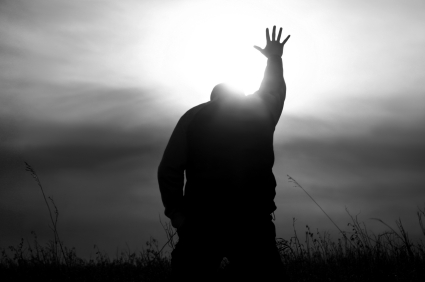 With God's help through His Holy Spirit we can improve ourselves and move on on the highway of righteousness, the highway of Holiness.
With God's help through His Holy Spirit we can improve ourselves and move on on the highway of righteousness, the highway of Holiness.
J. Rodman Williams writes on this;
The necessity of sanctification is declared in words of the Old Testament: "I am the Lord your God...be holy, for I am holy" (Leviticus 11:44). God is a holy God; hence He will have His people be a holy people. In speaking to Israel He says, "You shall be to me a kingdom of priests and a holy nation" (Exodus 19:6).
The very important need for sanctification therefore roots in the nature of God. When God is understood in His holiness, there can be no question about His requirement upon man. For if God made man to have fellowship with Himself, man must be holy even as His Maker.
Occasionally one hears God described in familiar and indulgent ways-e.g., a nice kind of guy. Aside from the sacrilege involved, such talk leaves no room or need for sanctification. One can then properly be or do anything-and it's fine with God. The need for sanctification can root only in a true understanding of the nature of God as holy.
If the necessity of sanctification roots in the holiness of God, it grows in the realization of the unholiness of man. The Scriptures of the Old and New Testaments are an ever increasing portrayal of man's deep-dyed lack of holiness. It is not only a matter of man's external actions wherein takes God's name in vain, commits adultery, kills, steals, lies, and so on; it is also an even more urgent matter of man's internal thoughts and feelings wherein he despises God, lusts, hates, envies, judges, condemns. Man is anything but holy; impurity and uncleanness mark his life all through.
Two things may be said about the method of sanctification: first, there must be a radical break or reorientation in man's nature that puts him on the road to holiness; second, there must be a continuing looking to the Lord for growth in righteousness thereafter.
First, the radical break is a dying to unholiness, a death to sin. For example, Romans 6 depicts this in terms of being baptized into the death of Christ (verse 3). Also in this same chapter the radical break is viewed as a deliverance from bondage, from slavery to sin (verse 6). This death to sin, this deliverance from bondage, is essential; for without such, all growth in holiness is impossible.
There is no point in discussing growth in something that is either not there to begin with, or, if there, is confined so tightly it cannot increase. A radical break with the past, a new beginning, is necessary.
The Scripture says flatly: no. Man does not now have it "in himself." Rather, man is spiritually "dead...through trespasses and sins" (Ephesians 2:1); he is "enslaved to sin" (Romans 6:6). So, try as hard as he may to grow in true character and holiness, man cannot do so initially because of his death and serfdom.
J. Rodman Williams
Then with this we come back to the point. That to be able to work on this Holiness, to be able to work on that process of Holiness in Sanctification, we first MUST have a complete break with our un-Holiness.
We must make the first step out of the life in Sin and Darkness into a life lived in the Light of Jesus Christ.
As we have heard so many times during our Sundayschool series on the 10 commandments.
Exodus 20:2-3 (KJV)
“I am the Lord thy God, which have brought thee out of the land of Egypt, out of the house of bondage. 3 Thou shalt have no other gods before me.”
In the same way as the Israelites where set free from their life of bondage in Egypt the new believer is set free from a live of bondage in Sin and Darkness.
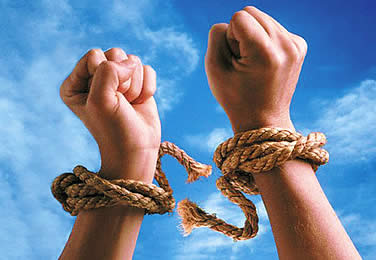 But now as made alive and free, grateful for God's redemption, they are to keep His commandments.
But now as made alive and free, grateful for God's redemption, they are to keep His commandments.
The point then is (as Paul so often stresses), the law cannot make alive or set free; only God can do that.
But once made alive and set free, it is possible to begin to do what never could have been done before.
Dr. Williams continues;
There can be no sanctification that does not begin with faith in Jesus Christ and His death on the cross as our own death; for to be baptized into that death (as Paul puts it) is death to sin, freedom from slavery to sin. There can be no other point of departure for Christian living, for growth in holiness, for sanctification. For in that death there is resurrection; in that liberation there is new life. For Christ not only died; He also rose again, and with Him as the living Lord there can now be real growth in sanctification.
Second, after the radical break, the dying to sin through Christ, comes the living to God in Christ. So writes Paul: "The death he died he died to sin, once for all, but the life he lives he lives to God. So you also must consider yourselves dead to sin and alive to God in Christ Jesus" (Romans 6: 10-11).
Sanctification, growth in holiness, becomes a matter of being "alive to God in Christ Jesus." We who were "slaves of sin...having been set free from sin, have become slaves of righteousness" (Romans 6:17-18).
This growth in holiness, however, is nothing automatic and inevitable. There is a radical break with the past through faith in Christ's death and baptism in His name, and there is a new life beginning; but this growth only occurs as we look to God in Christ Jesus and continue to offer ourselves for His cleansing and service.
J. Rodman Williams
When we need to grow in this holiness is it possible to reach complete Holiness as some churches proclaim. The biblical answer to these questions is that God's standard can be nothing less than perfection in holiness. There must be growth in holiness as we look to Jesus Christ. But perfection of our own character in this life?
The answer is a very clear and loud no!!!
The more you grow in holiness, the more you will realize that there are more sins to overcome.
It is the saints who are always most conscious of their sinfulness, because the closer they come to God in holiness the more they behold the sin that still remains in them.
The next thing that is so closely related to this topic of us traveling on this highway of Holiness, the stumbling, tripping, backsliding is something that is completely impossible in the mindset of the calvinist thinker, and that is apostasy.

Apostasy, Rejecting Christ
According to the dictionary apostasy is the abandonment of previous loyalty, or the renunciation of a previous held believe. The English word apostasy is a transliteration of the New Testament Greek word apostasia. Reference works note that it and its verbal form include these nuances:
- to take a stand apart from,
- to commit political defection or treason,
- to separate from,
- to be drawn off or away,
- to induce revolt,
- to withdraw, to depart,
- to fall away,
- to cease from having any interaction with, to desert, and to put away (as in divorce).
None of these phrases suggest a loss of covenant as the result of an accidental or temporary breech of established standards of holiness. Instead, they all imply forethought, intent, and a persistent state of rebellion against the mastery of Jesus over one’s life.
What is it that can lead to Apostasy?
- Believers, really through their unbelief, fail to take the truths of God, through exhortation, warnings, promises, and teachings of God’s Word with utmost seriousness.
- With all that has been going on this world, the realities of the world become greater than the realities of God� s heavenly kingdom, believers gradually cease to draw near to God through Christ
- By seeing and hearing more and more sin, more frequently and more intense. The very deceitfulness of sin, people become increasingly tolerant of sin in their own lives. People are becoming more in love with their sinful live and they no longer pursue and love righteousness. They no longer hate evil wickedness.
- With all of this calluses are forming on peoples hearts and they do not hear the rebuke of the Holy Spirit anymore.
Hebrews 3:8, 13 (AMP)
“8 Do not harden your hearts, as [happened] in the rebellion [of Israel] and their provocation and embitterment [of Me] in the day of testing in the wilderness, 13 But instead warn (admonish, urge, and encourage) one another every day, as long as it is called Today, that none of you may be hardened [into settled rebellion] by the deceitfulness of sin [by the fraudulence, the stratagem, the trickery which the delusive glamor of his sin may play on him].”
How can we expect the Holy Spirit to live and move in our lives when we are living in such a horrible way of denial, that all the things I previously mentioned are influential in our choices and we make that horrible choice to deny Jesus the Christ Yeshua Ha'Mashiach and deny, yes grief the Holy Spirit.
All these things help to quench the fire of Holy Spirit in our lives.
When we are working on Holiness, when we are celebrating our sanctification, when we are dancing in the light of the world, In the Meshiach then we are transforming our lives and our bodies to be a temple to the Holy Spirit.
When we are working on Holiness our true intends are revealed in the Holy Fire of God, that which we called the refiners fire.
1 Corinthians 3:13-17 (CEB)
“each one’s work will be clearly shown. The day will make it clear, because it will be revealed with fire—the fire will test the quality of each one’s work. 14 If anyone’s work survives, they’ll get a reward. 15 But if anyone’s work goes up in flames, they’ll lose it. However, they themselves will be saved as if they had gone through a fire. 16 Don’t you know that you are God’s temple and God’s Spirit lives in you? 17 If someone destroys God’s temple, God will destroy that person, because God’s temple is holy, which is what you are.”
We are saved by Grace, but the hard work starts after this with the true decision if we want to follow Christ, or not.
Are we willing to build the temple of the Holy Spirit, or are we just letting it be.
 Ephesians 4:10-13 (Amp)
Ephesians 4:10-13 (Amp) appears only once in (Eph. 4:11). While the word is familiar to use from modern usage, we are uncertain as to the exact role of pastors in the New Testament or how they functioned in relation to elders, bishops and other leaders. In which light we best can see the role at the same level as bishop with the responsibility of growing and educating the church.
appears only once in (Eph. 4:11). While the word is familiar to use from modern usage, we are uncertain as to the exact role of pastors in the New Testament or how they functioned in relation to elders, bishops and other leaders. In which light we best can see the role at the same level as bishop with the responsibility of growing and educating the church.






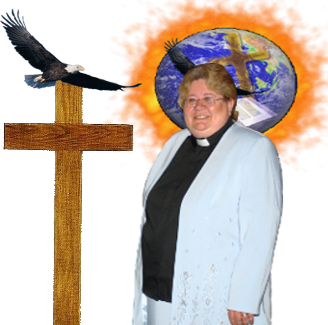
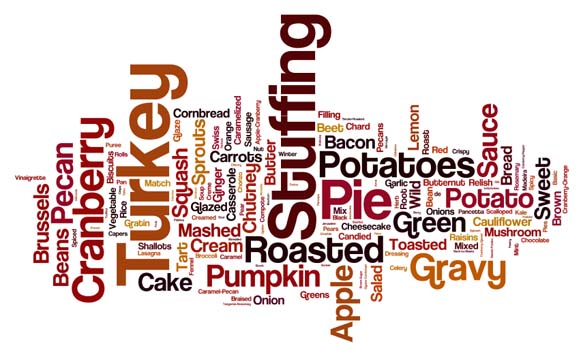
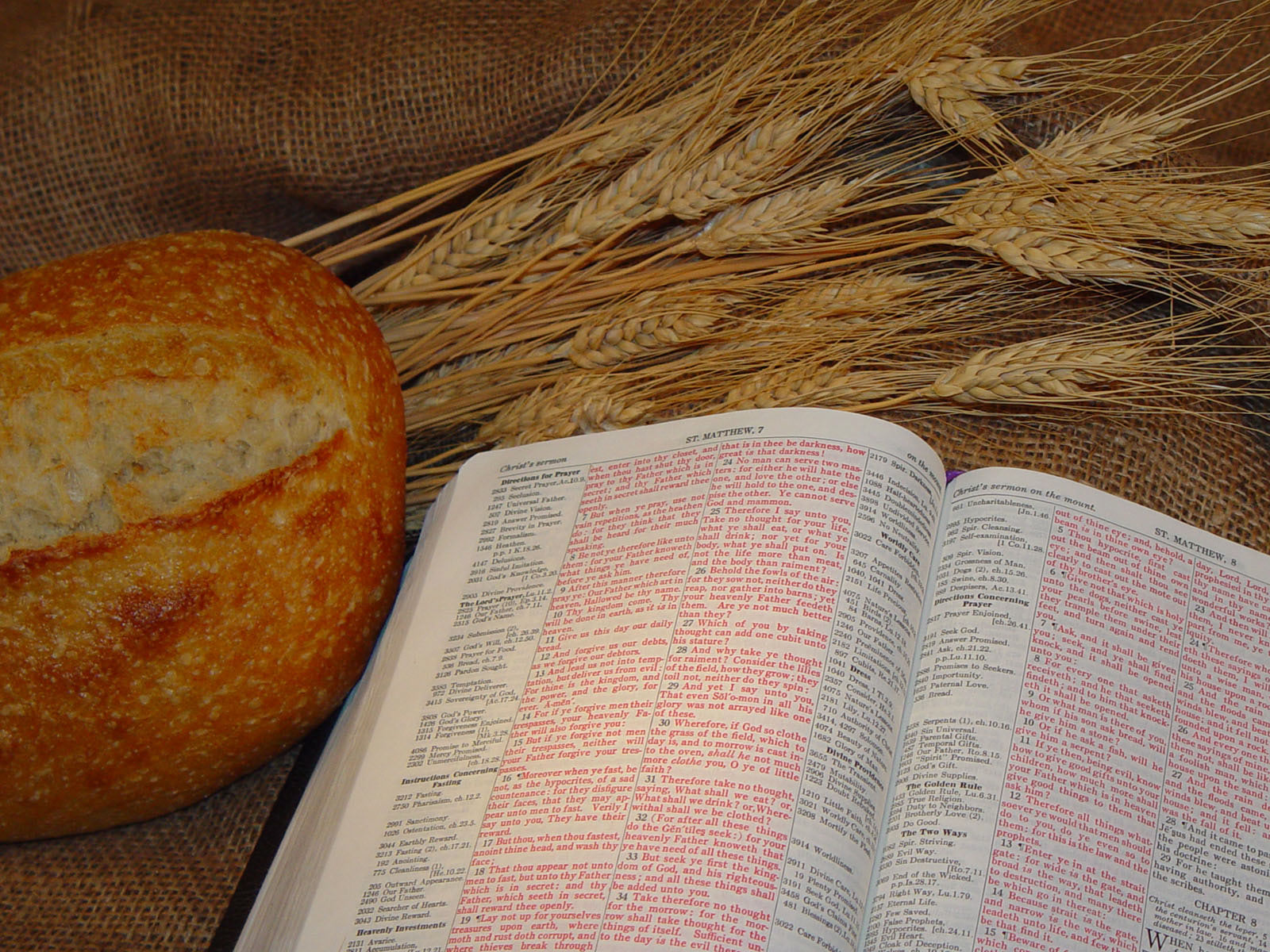 and the rule of the Oral Torah.
and the rule of the Oral Torah.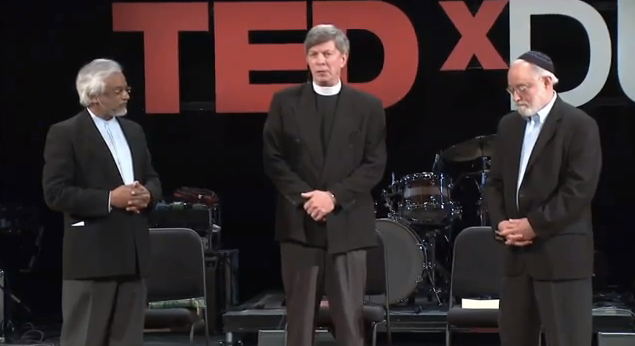 The Idea of mankind being in a higher authority is in my opinion preposterous and not in line with any scripture at all.
The Idea of mankind being in a higher authority is in my opinion preposterous and not in line with any scripture at all.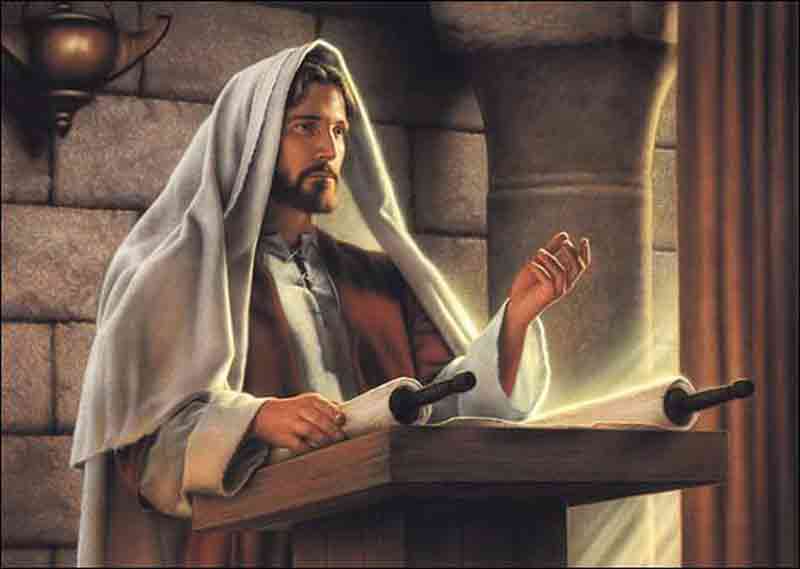 fulfillment of the Torah, or as Jesus says not to abolish but to complete.
fulfillment of the Torah, or as Jesus says not to abolish but to complete.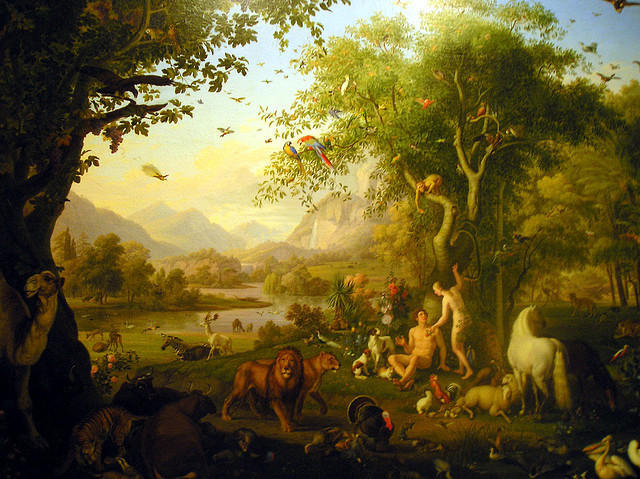 "
"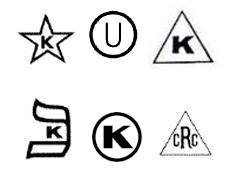
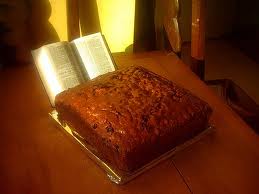 So then knowing all of this let me ask it again, why should I eat kosher?
So then knowing all of this let me ask it again, why should I eat kosher?

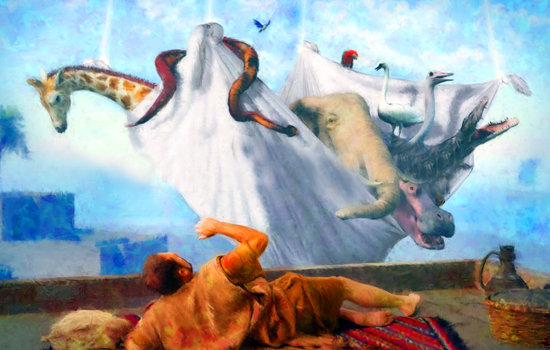 Acts 10:9-16 (AMP)
Acts 10:9-16 (AMP)




 Holiness is not something that comes automatically, Holiness is something we need to work on.
Holiness is not something that comes automatically, Holiness is something we need to work on. With God's help through His Holy Spirit we can improve ourselves and move on on the highway of righteousness, the highway of Holiness.
With God's help through His Holy Spirit we can improve ourselves and move on on the highway of righteousness, the highway of Holiness. But now as made alive and free, grateful for God's redemption, they are to keep His commandments.
But now as made alive and free, grateful for God's redemption, they are to keep His commandments.
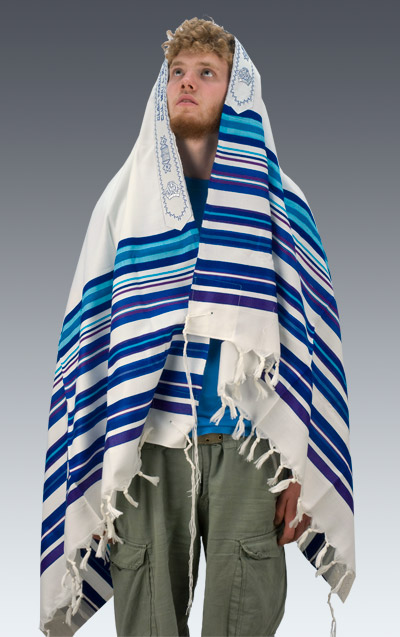 We do not know her name and neither do we know where she came from. What we do know is that she knew the prophets and that she understood the words of the prophet Malachi as written in Chapter 4 verse 2.
We do not know her name and neither do we know where she came from. What we do know is that she knew the prophets and that she understood the words of the prophet Malachi as written in Chapter 4 verse 2.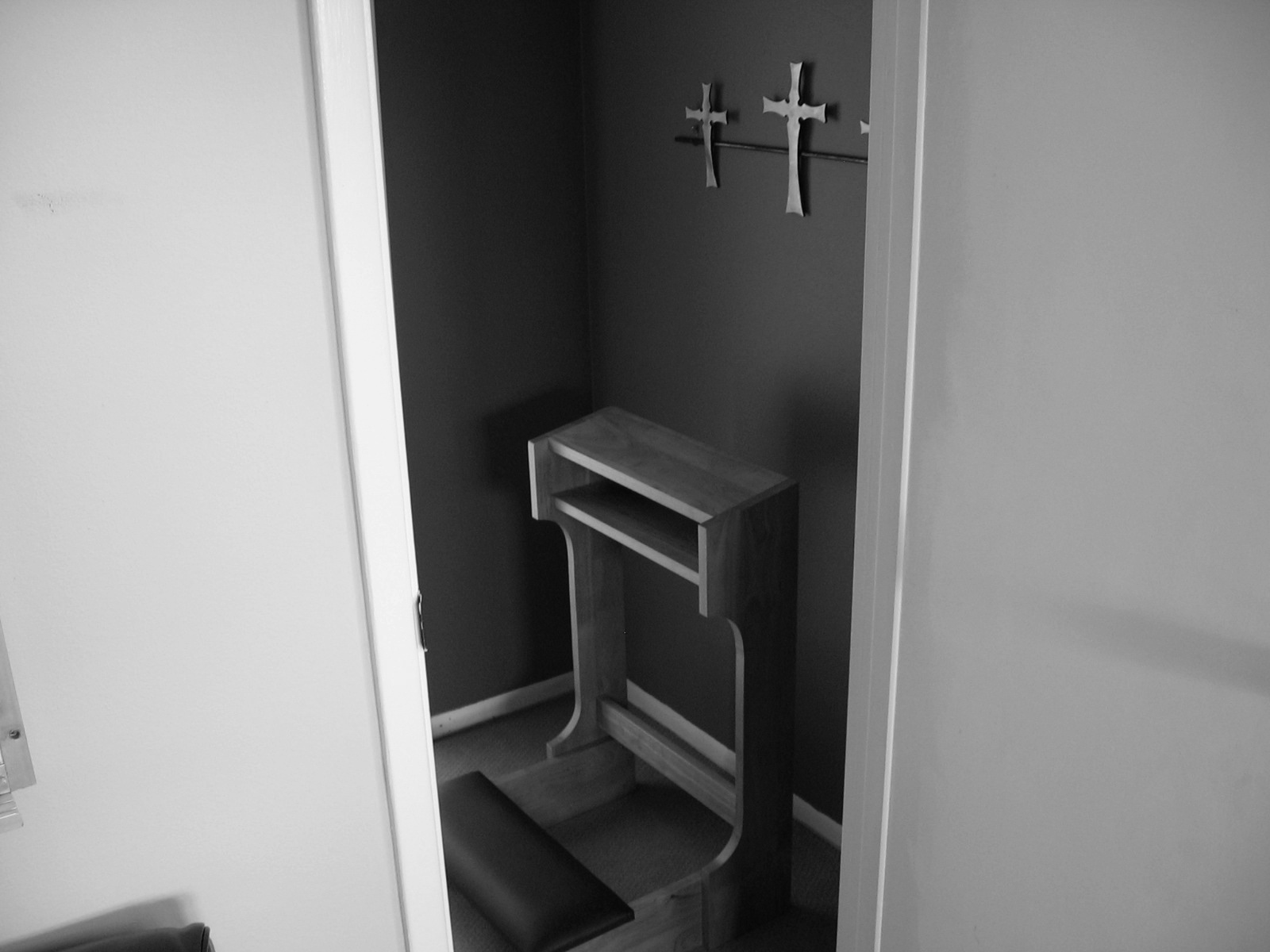 he Greek word for closet is tamieion [tam-i'-on] a dispensary or magazine, i.e. a chamber on the ground-floor (generally used for storage or privacy, a spot for retirement):
he Greek word for closet is tamieion [tam-i'-on] a dispensary or magazine, i.e. a chamber on the ground-floor (generally used for storage or privacy, a spot for retirement):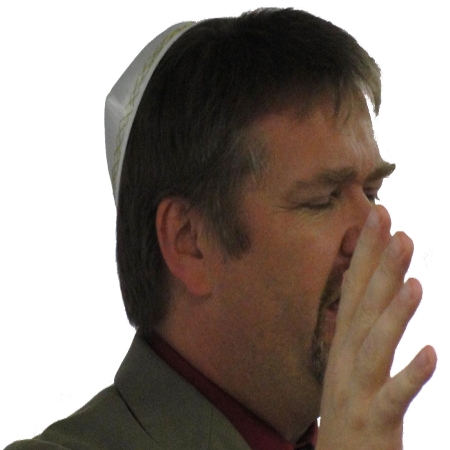 To clarify, in Hebrew, this head covering is termed a Kipah or Yarmulka. My choice to wear it, particularly in the company of our Messianic brethren, stems from a deep-seated respect for God. The Holy Bible indeed references head coverings, predominantly in a metaphorical sense, emphasizing our hair rather than physical headgear.
To clarify, in Hebrew, this head covering is termed a Kipah or Yarmulka. My choice to wear it, particularly in the company of our Messianic brethren, stems from a deep-seated respect for God. The Holy Bible indeed references head coverings, predominantly in a metaphorical sense, emphasizing our hair rather than physical headgear.

















